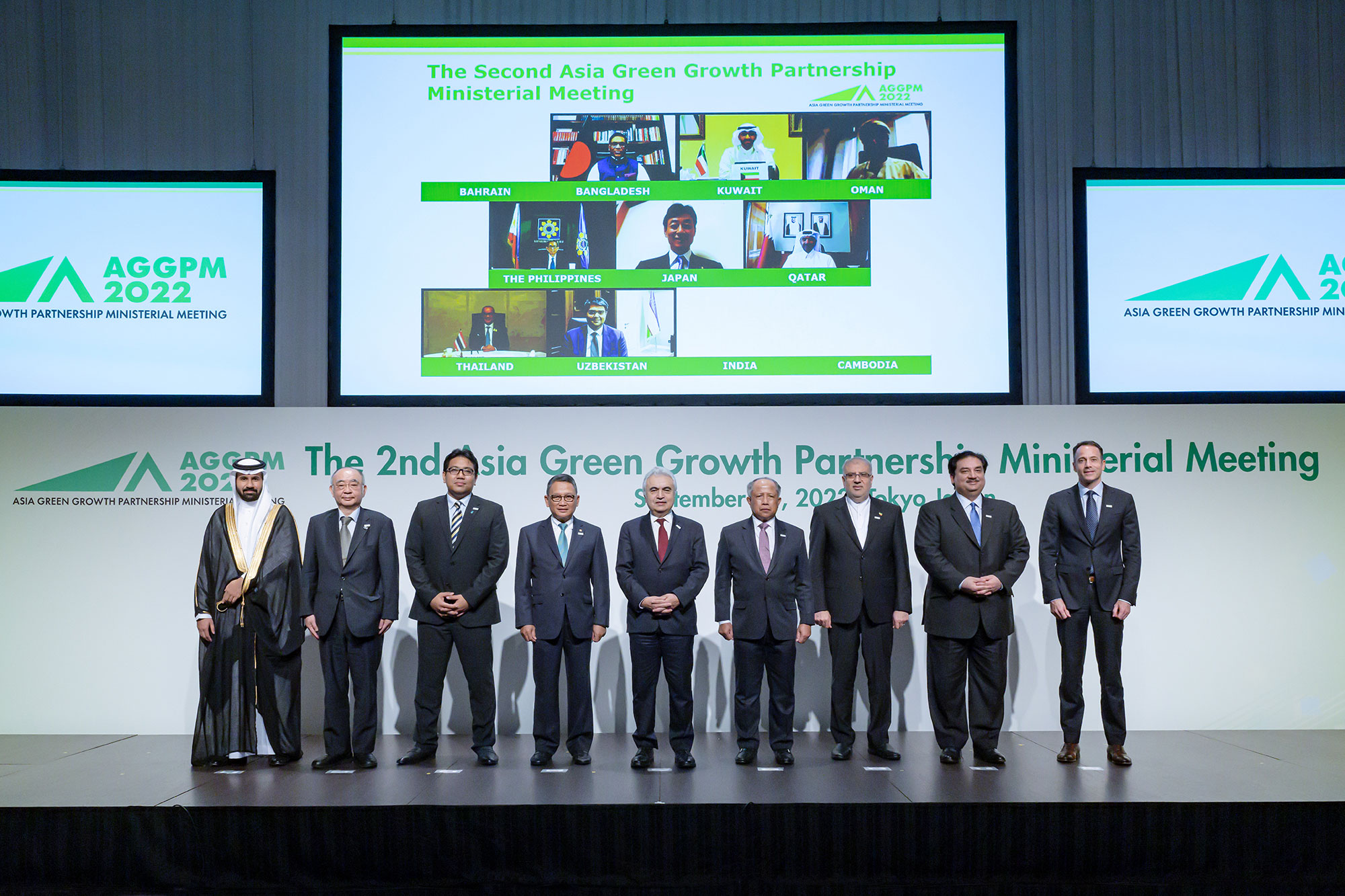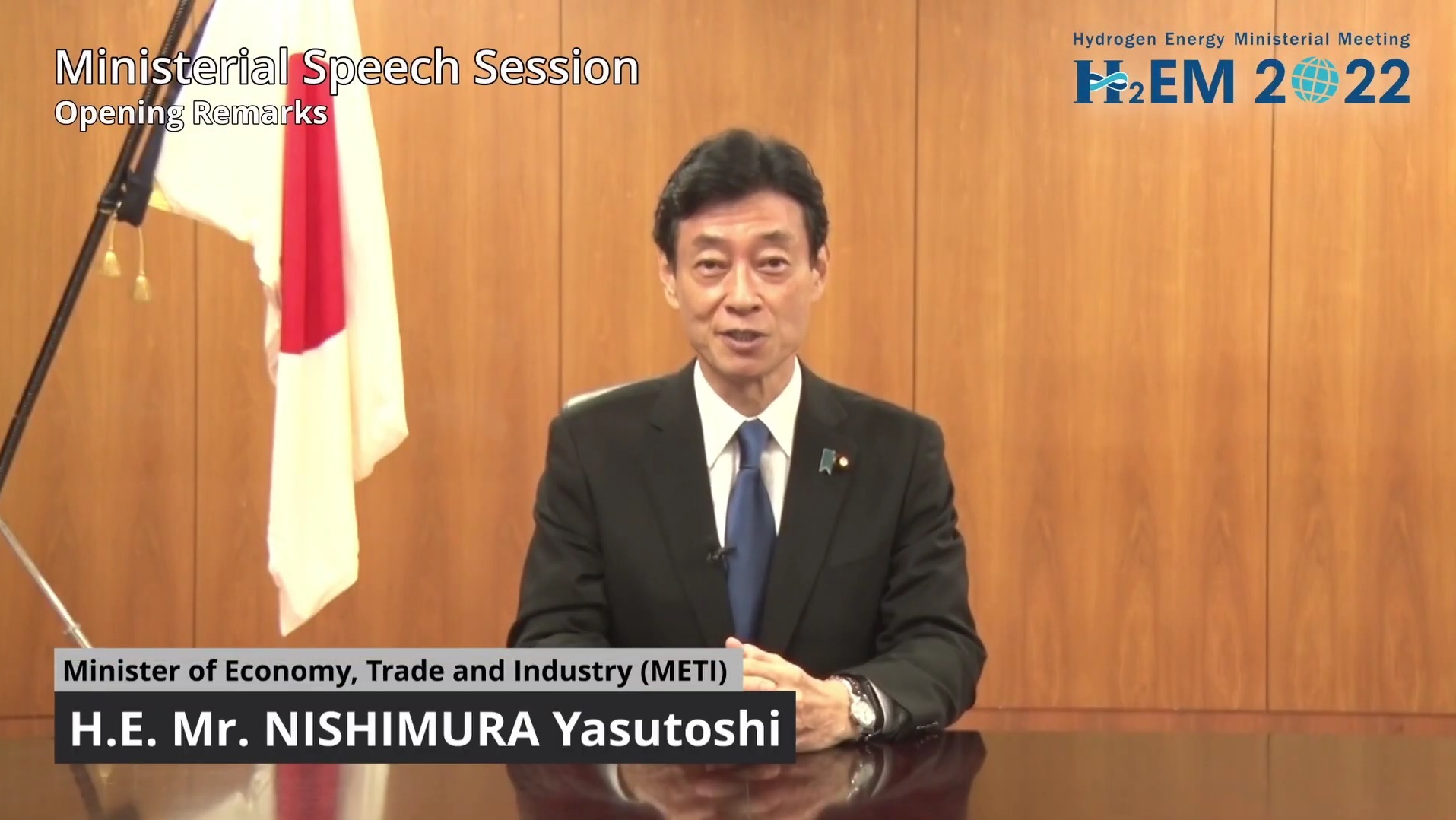Coming clean
Tokyo GX Week, a series of ten green transformation-related conferences, saw decision-makers descend on Tokyo to discuss how green energy and growth can go together
As the need for substantial climate action grows increasingly urgent, societies around the world are confronted with the tasks of switching from fossil fuel-oriented economic and industrial structures toward ones based on clean energy, and driving economic growth and development through emissions mitigation. Green transformation (GX) is the forward-looking idea that decarbonization brings plentiful opportunities for innovation and growth, which can ultimately help achieve a sustainable and thriving global economy.
Green transformation (GX) is the forward-looking idea that decarbonization brings plentiful opportunities for innovation and growth
This sort of expectation was on full display at Tokyo GX Week, a series of meetings organized by Japan’s Ministry of Economy, Trade and Industry (METI) between late September and early October. The conference brought together government ministers and business leaders from dozens of countries and fields to discuss pathways to a greener future that take into account each society’s specific circumstances. Across a total of 10 conferences on topics from hydrogen energy and carbon recycling to climate-related financial rules, participants presented ongoing initiatives, shared knowhow, and examined upcoming challenges. Two of the most significant meetings at Tokyo GX Week dealt with Earth-friendly growth across Asia and advances in hydrogen energy respectively.
 The Asia Green Growth Partnership Ministerial Meeting at Tokyo GX Week | AGGPM
The Asia Green Growth Partnership Ministerial Meeting at Tokyo GX Week | AGGPM
Greener growth across Asia
The Asia Green Growth Partnership Ministerial Meeting focused on the compatibility of economic growth with the transition to a greener society. Attended by representatives of 19 Asian and Middle Eastern countries as well as Canada, plus three international organizations, the meeting featured a keynote speech by METI Minister Yasutoshi Nishimura, who drew attention to issues such as how to finance a realistic energy transition and the importance of having such a transition be balanced, simultaneously addressing the challenges of energy security, economic growth, and environmental concerns.
Clean fuels such as hydrogen and ammonia emit no CO2 when burned
Clean fuels such as hydrogen and ammonia emit no CO2 when burned
Participants noted the potential of tighter cooperation among Asia, where demand for energy keeps growing, and the resource-rich Middle East. The two regions could work together to build supply chains for clean fuels such as hydrogen and ammonia, which emit no CO2 when burned. But as such carbon-neutral energy sources are still being developed, some speakers emphasized the importance of utilizing liquified natural gas and other relatively cleaner fossil fuels during the transition period.
Another major topic at the meeting was decarbonization-related funding and investment, particularly for developing countries. Participants welcomed Japan’s efforts in pushing for the formulation of Asian guidelines for transition financing, which could help banks and other lenders to better evaluate so-called transition activities—decarbonization initiatives that reduce emissions gradually rather than eliminate them entirely—when making financing decisions.
 METI Minister Yasutoshi Nishimura speaking at the Hydrogen Energy Ministerial Meeting | HEM
METI Minister Yasutoshi Nishimura speaking at the Hydrogen Energy Ministerial Meeting | HEM
The rise of hydrogen
One particularly promising technology for cutting emissions was the center of attention at the GX Week’s Hydrogen Energy Ministerial Meeting, now held for the fifth time. This series of conferences was launched by Japan in 2018 to promote hydrogen energy around the world and provide a platform for international cooperation. Since then, 25 countries have formulated national hydrogen strategies and another 24 have stated their intention to follow suit, while more and more hydrogen fuel cell systems are being developed and hydrogen refueling stations are being built around the world. The latest meeting celebrated this progress while recognizing the need for further steps in synchronizing regulations, building supply chains, and supporting technological cooperation.
Although most hydrogen is still being made from fossil fuels, the mass production of low-carbon and renewable hydrogen—achieved through the practical application of technology to capture CO2 generated during manufacturing, or production entirely with renewable energy—could tip the scales toward widespread clean hydrogen adoption, which will then heighten the fuel’s economic viability. Meeting participants recognized the potential of low-emission hydrogen especially for heavy industries where electrification is difficult, such as steel and chemicals manufacturing, and encouraged public and private actors alike to lay the groundwork for increasing its production.
The vibrant exchange of ideas at these and other meetings held during Tokyo GX Week suggested that the green transformation is already well underway and likely to pick up speed soon. For more details on all the events plus an extensive video archive, see METI’s Tokyo GX Week special site.
The green transformation is already well underway and likely to pick up speed soon